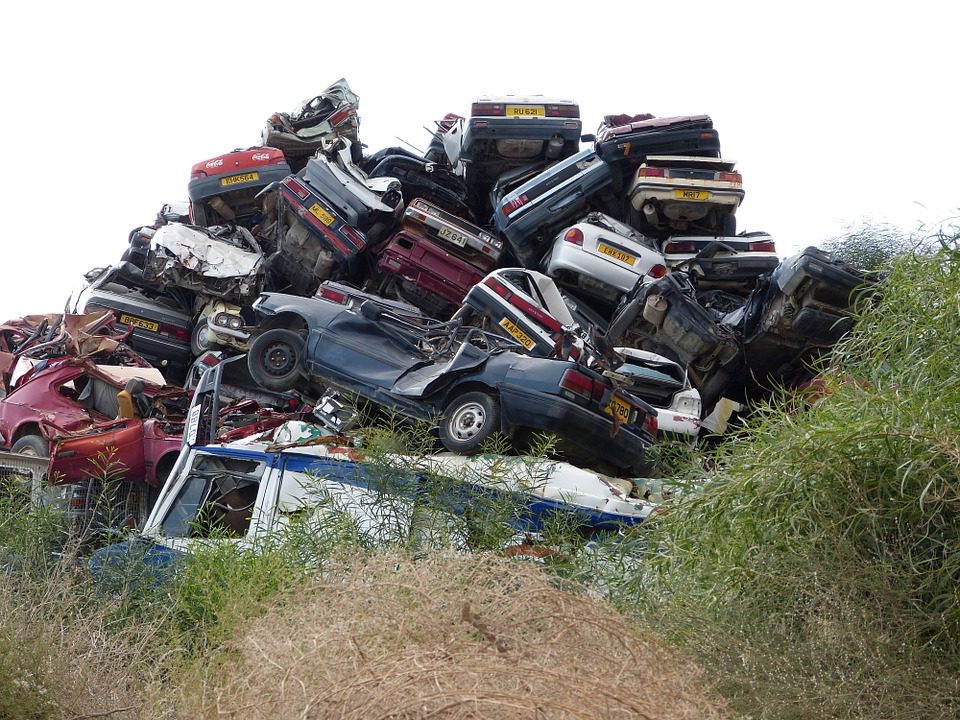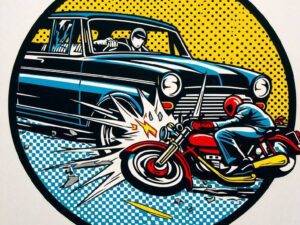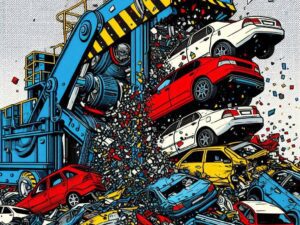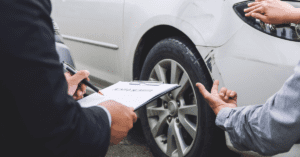Should I buy an insurance write-off?

Many potential second-hand car buyers would be horrified at the thought of driving off the forecourt in a car that had been previously written-off.
Horror stories of ‘cut-and-shut’ cars – where two write-offs have been welded together – linger long in the memories of wary motorists. But there are a host of reasons for an insurance company to write-off a car, and many of the least seriously damaged can provide bargain-hunters with big discounts.
Some write-offs may have scarcely been damaged at all, having been recovered from stolen after the insurer has already paid out. Others may have been written off because of the cost of hi-tech repairs like airbags or seat belt tensioners before you consider a new bonnet, front wing, garage labour charges and the costs of a hire car.
So while some write-offs are probably best avoided, there are potentially hundreds of bargains on the used market. There are four categories written off cars fall into: Cat A and B, which can never be returned to the road, while S has suffered structural damage and N has suffered non-structural damage.
What happens if my car is a write-off?
If your car is written off it quite simply means you will not get it back, it will be retained by your insurance provider. The ownership of the car then transfers to them with you receiving a compensation pay-out. This is because the cost of the repair work almost always exceeds the value of the car, making it a ‘write off’ or a ‘total loss claim’.
Your insurer will then make all the scrappage arrangements to start the process. If you car is deemed a write-off you should however follow these steps:
Apply to take the registration number off the vehicle if you want to keep it, via GOV.UK
Send the log book (V5C) to your insurance company but keep the yellow ‘sell, transfer or part-exchange your vehicle to the motor trade’ section
Tell the DVLA your vehicle has been written off
If you don’t tell the DVLA your car’s been written off, you could be fined £1,000
If your car falls into Category N or Category S, you have the option of buying it back and fixing it yourself. You’ll need to:
Send the complete log book to your insurance company
Apply for a free duplicate log book using form V62
The DVLA will record the vehicle’s category in the log book
You also have the possibility to buy and sell second-hand Cat S and N write-offs, however these cars may be more expensive and can be trickier to insure in the future, with some insurers flat out refusing to insure them.
What do insurers do with written-off cars?

This is entirely dependent on the category into which your car falls into. If your car falls into Cat A or B, then it will be crushed. If it is referred to as a Cat N or S then your insurance provider may decide to sell your car on, either to you or to a third party for it to be salvaged.
Should you buy an insurance write-off?
Category A and B vehicles are never suitable for repair, and should never be offered for sale. However, as mentioned above Cat N and S vehicles are legally allowed to be repaired and sold, with the caveat that the buyer is informed of the car’s history.
It should go without saying if a vehicle has been previously written off, it will appear riskier than choosing a car with no accident history for insurance.
What should I do when buying an insurance write-off
If you are buying a car that has previously been an insurance write-off, it is best to get a vehicle history check on the motor you are buying to get as much information as you need on the health of the car and whether it is in a roadworthy condition.
You should also ascertain who has handled the vehicle between it being declared as a total loss and it being repaired for the road. Citizens Advice suggests getting an independent report on the car to ensure the vehicle is inspected by an impartial body.
The inspection may be likely to spot further faults that have not been previously pointed out by the vehicle history check, or those that are not the reason why the car had been written-off.
Before purchasing it is worth contacting your insurer to get a quote to correlate if any money you are saving from buying a previously written-off car is not exacerbated by the cost of an insurance premium.
If you choose to buy, you should inform your insurer that your new vehicle has previously been declared as a total loss. Failing to do so could mean your insurer rejects any claim you may make in future.
If in doubt as to what to do, you should follow these steps from the government website about the vehicle’s history:
Get insurance for your written-off car
If you’re buying a car that has previously been written-off, Adrian Flux can help. As a specialist insurance broker, we’re able to offer insurance for written-off cars where some companies cannot. Call us on 0333 300 4888 for a quote, or request a callback at a time that suits you.






